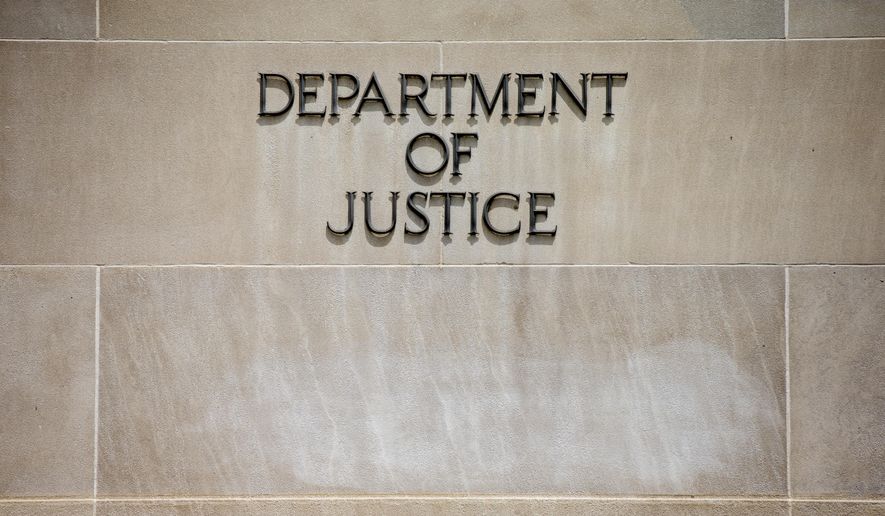Federal authorities have arrested and charged a contractor for the National Security Agency with stealing classified material, the first report of such accusations against an employee at the electronic eavesdropping agency since the massive leak of secrets by former contractor Edward Snowden in 2013.
In a five-page criminal complaint unsealed Wednesday, federal prosecutors formally accused Harold Thomas Martin III, 51, of Glen Burnie, Maryland. Investigators searched his home and vehicle on Aug. 27 and found he was in possession of six classified documents that contained sensitive information, the complaint states, noting that hard-copy paper documents and digitally stored information were recovered.
The classified documents date back to 2014 and include information gathered through “sensitive government sources, methods and capabilities, which are critical to a wide variety of national security issues,” the criminal complaint states. “The disclosure of the documents would reveal those sensitive sources, methods and capabilities.”
Mr. Martin, who held a top-secret national security clearance, was arrested the day of the search and has been in custody since then. Like Mr. Snowden, Mr. Martin was employed at the NSA by way of the Booz Allen Hamilton consultancy firm, which issued a statement Wednesday saying Mr. Martin was fired after his arrest in August.
He is charged with the theft of government property, a felony punishable by up to 10 years in prison, and with the unauthorized removal and retention of classified materials, a misdemeanor punishable by up to a year in prison.
The criminal complaint, which does not indicate what prompted the search or the type of information or property was taken, says Mr. Martin agreed to an interview and admitted taking the documents.
“Martin at first denied, and later when confronted with specific documents, admitted he took documents and digital files from his work assignment to his residence and vehicle that he knew were classified,” according to the complaint. “Martin stated that he knew what he had done was wrong and that he should not have done it because he knew it was unauthorized.”
James Wyda, the federal public defender for Maryland, is representing Mr. Martin.
“There is no evidence that Hal Martin intended to betray his country,” Mr. Wyda said in a statement. “What we do know is that Hal Martin loves his family and his country. He served honorably as a lieutenant in the United States Navy, and he has devoted his entire career to serving his country. We look forward to defending Hal Martin in court.”
The New York Times first reported the arrest of an NSA contractor who worked for Booz Allen Hamilton. The complaint does not identify the agency Mr. Martin worked for as a contractor, but a U.S. official familiar with the investigation confirmed it was the NSA, The Associated Press reported.
Booz Allen said in a statement that, after learning of the arrest of one of its employees, it reached out to law enforcement authorities to offer its cooperation and fired the worker.
“When Booz Allen learned of the arrest of one of its employees by the FBI, we immediately reached out to the authorities to offer our total cooperation in their investigation, and we fired the employee,” said Craig Veith, vice president of external relations. “We continue to cooperate fully with the government on its investigation into this serious matter.”
Mr. Snowden’s theft of more than 1.5 million classified NSA documents, which he leaked to journalists, revealed a secret surveillance program that collected Americans’ phone records.
The disclosures set off a fierce debate that pit civil libertarians concerned about privacy against more hawkish lawmakers fearful about losing tools to combat terrorism. Democrats and libertarian-leaning Republicans pushed through a reauthorization of the USA Patriot Act last year that ended the program.
In the time since he leaked the records in 2013, Mr. Snowden has taken asylum in Russia and been charged with two violations of the Espionage Act, unauthorized communication of national defense information and providing U.S. classified intelligence to an unauthorized person, as well as theft of government property. A conviction under the Espionage Act can carry a maximum prison sentence of 20 years.
“Am I correct in reading they didn’t charge him under the Espionage Act? Under this administration, that’s a noteworthy absence,” Mr. Snowden wrote Wednesday on Twitter, commenting on Mr. Martin’s arrest.
However, the Justice Department could still issue new charges via a grand jury indictment.
Speaking at a cybersecurity conference Wednesday, the Justice Department’s top national security official, Assistant Attorney General John Carlin, confirmed the arrest of “an individual who’s involved in taking classified information.” He said the arrest generally pointed to the threat posed by insiders.
Asked about the arrest Wednesday, White House spokesman Josh Earnest said numerous steps were taken to tighten security protocols within the intelligence community after Mr. Snowden’s disclosures — including a requirement to reinvestigate individuals with security clearances every five years and the establishment of a task force focused on evaluating insider threats.
“The president’s got a lot of confidence [in] the vast majority of people who serve this country in the national security arena,” Mr. Earnest said. “Our professionals in the intelligence community are genuine American patriots.”
⦁ Dave Boyer contributed to this article, which is based in part on wire service reports.
• Andrea Noble can be reached at anoble@washingtontimes.com.




Please read our comment policy before commenting.